- Home
- Elizabeth Gaskell
A Dark Night's Work Page 3
A Dark Night's Work Read online
Page 3
The clients re-echoed Mr. Wilkins’s words, and spoke of Mr. Dunster as invaluable to his master; a thorough treasure, the very saving of the business. They had not been better attended to, not even in old Mr. Wilkins’s days; such a clear head, such a knowledge of law, such a steady, upright fellow, always at his post. The grating voice, the drawling accent, the bottle-green coat, were nothing to them; far less noticed, in fact, than Wilkins’s expensive habits, the money he paid for his wine and horses, and the nonsense of claiming kin with the Welsh Wilkinses, and setting up his brougham to drive about ---shire lanes, and be knocked to pieces over the rough round paving-stones thereof.
All these remarks did not come near Ellinor to trouble her life. To her, her dear father was the first of human beings; so sweet, so good, so kind, so charming in conversation, so full of accomplishment and information! To her healthy, happy mind every one turned their bright side. She loved Miss Monro—all the servants—especially Dixon, the coachman. He had been her father’s playfellow as a boy, and, with all his respect and admiration for his master, the freedom of intercourse that had been established between them then had never been quite lost. Dixon was a fine, stalwart old fellow, and was as harmonious in his ways with his master as Mr. Dunster was discordant; accordingly he was a great favourite, and could say many a thing which might have been taken as impertinent from another servant.
He was Ellinor’s great confidant about many of her little plans and projects; things that she dared not speak of to Mr. Corbet, who, after her father and Dixon, was her next best friend. This intimacy with Dixon displeased Mr. Corbet. He once or twice insinuated that he did not think it was well to talk so familiarly as Ellinor did with a servant—one out of a completely different class—such as Dixon. Ellinor did not easily take hints; every one had spoken plain out to her hitherto; so Mr. Corbet had to say his meaning plain out at last. Then, for the first time, he saw her angry; but she was too young, too childish, to have words at will to express her feelings; she only could say broken beginnings of sentences, such as “What a shame! Good, dear Dixon, who is as loyal and true and kind as any nobleman. I like him far better than you, Mr. Corbet, and I shall talk to him.” And then she burst into tears and ran away, and would not come to wish Mr. Corbet good-bye, though she knew she should not see him again for a long time, as he was returning the next day to his father’s house, from whence he would go to Cambridge.
He was annoyed at this result of the good advice he had thought himself bound to give to a motherless girl, who had no one to instruct her in the proprieties in which his own sisters were brought up; he left Hamley both sorry and displeased. As for Ellinor, when she found out the next day that he really was gone—gone without even coming to Ford Bank again to see if she were not penitent for her angry words—gone without saying or hearing a word of good-bye—she shut herself up in her room, and cried more bitterly than ever, because anger against herself was mixed with her regret for his loss. Luckily, her father was dining out, or he would have inquired what was the matter with his darling; and she would have had to try to explain what could not be explained. As it was, she sat with her back to the light during the schoolroom tea, and afterwards, when Miss Monro had settled down to her study of the Spanish language, Ellinor stole out into the garden, meaning to have a fresh cry over her own naughtiness and Mr. Corbet’s departure; but the August evening was still and calm, and put her passionate grief to shame, hushing her up, as it were, with the other young creatures, who were being soothed to rest by the serene time of day, and the subdued light of the twilight sky.
There was a piece of ground surrounding the flower-garden, which was not shrubbery, nor wood, nor kitchen garden—only a grassy bit, out of which a group of old forest trees sprang. Their roots were heaved above ground; their leaves fell in autumn so profusely that the turf was ragged and bare in spring; but, to make up for this, there never was such a place for snowdrops.
The roots of these old trees were Ellinor’s favourite play-place; this space between these two was her doll’s kitchen, that its drawing-room, and so on. Mr. Corbet rather despised her contrivances for doll’s furniture, so she had not often brought him here; but Dixon delighted in them, and contrived and planned with the eagerness of six years old rather than forty. To-night Ellinor went to this place, and there were all a new collection of ornaments for Miss Dolly’s sitting-room made out of fir-bobs, in the prettiest and most ingenious way. She knew it was Dixon’s doing and rushed off in search of him to thank him.
“What’s the matter with my pretty?” asked Dixon, as soon as the pleasant excitement of thanking and being thanked was over, and he had leisure to look at her tear-stained face.
“Oh, I don’t know! Never mind,” said she, reddening.
Dixon was silent for a minute or two, while she tried to turn off his attention by her hurried prattle.
“There’s no trouble afoot that I can mend?” asked he, in a minute or two.
“Oh, no! It’s really nothing—nothing at all,” said she. “It’s only that Mr. Corbet went away without saying good-bye to me, that’s all.” And she looked as if she should have liked to cry again.
“That was not manners,” said Dixon, decisively.
“But it was my fault,” replied Ellinor, pleading against the condemnation.
Dixon looked at her pretty sharply from under his ragged bushy eyebrows.
“He had been giving me a lecture, and saying I didn’t do what his sisters did—just as if I were to be always trying to be like somebody else—and I was cross and ran away.”
“Then it was Missy who wouldn’t say good-bye. That was not manners in Missy.”
“But, Dixon, I don’t like being lectured!”
“I reckon you don’t get much of it. But, indeed, my pretty, I daresay Mr. Corbet was in the right; for, you see, master is busy, and Miss Monro is so dreadful learned, and your poor mother is dead and gone, and you have no one to teach you how young ladies go on; and by all accounts Mr. Corbet comes of a good family. I’ve heard say his father had the best stud-farm in all Shropshire, and spared no money upon it; and the young ladies his sisters will have been taught the best of manners; it might be well for my pretty to hear how they go on.”
“You dear old Dixon, you don’t know anything about my lecture, and I’m not going to tell you. Only I daresay Mr. Corbet might be a little bit right, though I’m sure he was a great deal wrong.”
“But you’ll not go on a-fretting—you won’t now, there’s a good young lady—for master won’t like it, and it’ll make him uneasy, and he’s enough of trouble without your red eyes, bless them.”
“Trouble—papa, trouble! Oh, Dixon! what do you mean?” exclaimed Ellinor, her face taking all a woman’s intensity of expression in a minute.
“Nay, I know nought,” said Dixon, evasively. “Only that Dunster fellow is not to my mind, and I think he potters the master sadly with his fid-fad ways.”
“I hate Mr. Dunster!” said Ellinor, vehemently. “I won’t speak a word to him the next time he comes to dine with papa.”
“Missy will do what papa likes best,” said Dixon, admonishingly; and with this the pair of “friends” parted,
CHAPTER IV.
The summer afterwards Mr. Corbet came again to read with Mr. Ness. He did not perceive any alteration in himself, and indeed his early-matured character had hardly made progress during the last twelve months whatever intellectual acquirements he might have made. Therefore it was astonishing to him to see the alteration in Ellinor Wilkins. She had shot up from a rather puny girl to a tall, slight young lady, with promise of great beauty in the face, which a year ago had only been remarkable for the fineness of the eyes. Her complexion was clear now, although colourless—twelve months ago he would have called it sallow—her delicate cheek was smooth as marble, her teeth were even and white, and her rare smiles called out a lovely dimple.
She met her former friend and lecturer with a grave shyness, for she remembered well how they had parted, and thought he could hardly have forgiven, much less forgotten, her passionate flinging away from him. But the truth was, after the first few hours of offended displeasure, he had ceased to think of it at all. She, poor child, by way of proving her repentance, had tried hard to reform her boisterous tom-boy manners, in order to show him that, although she would not give up her dear old friend Dixon, at his or anyone’s bidding, she would strive to profit by his lectures in all things reasonable. The consequence was, that she suddenly appeared to him as an elegant dignified young lady, instead of the rough little girl he remembered. Still below her somewhat formal manners there lurked the old wild spirit, as he could plainly see after a little more watching; and he began to wish to call this out, and to strive, by reminding her of old days, and all her childish frolics, to flavour her subdued manners and speech with a little of the former originality.
In this he succeeded. No one, neither Mr. Wilkins, nor Miss Monro, nor Mr. Ness, saw what this young couple were about—they did not know it themselves; but before the summer was over they were desperately in love with each other, or perhaps I should rather say, Ellinor was desperately in love with him—he, as passionately as he could be with anyone; but in him the intellect was superior in strength to either affections or passions.
The causes of the blindness of those around them were these: Mr. Wilkins still considered Ellinor as a little girl, as his own pet, his darling, but nothing more. Miss Monro was anxious about her own improvement. Mr. Ness was deep in a new edition of “Horace,” which he was going to bring out with notes. I believe Dixon would have been keener sighted, but Ellinor kept Mr. Corbet and Dixon apart for obvious reasons—they were each her dear friends, but she knew that Mr. Corbet did not like Dixon, and suspected that the feeling was mutual.
The only change of circumstances between this year and the previous one consisted in this development of attachment between the young people. Otherwise, everything went on apparently as usual. With Ellinor the course of the day was something like this: up early and into the garden until breakfast time, when she made tea for her father and Miss Monro in the dining-room, always taking care to lay a little nosegay of freshly-gathered flowers by her father’s plate. After breakfast, when the conversation had been on general and indifferent subjects, Mr. Wilkins withdrew into the little study so often mentioned. It opened out of a passage that ran between the dining-room and the kitchen, on the left hand of the hall. Corresponding to the dining-room on the other side of the hall was the drawing-room, with its side-window serving as a door into a conservatory, and this again opened into the library. Old Mr. Wilkins had added a semicircular projection to the library, which was lighted by a dome above, and showed off his son’s Italian purchases of sculpture. The library was by far the most striking and agreeable room in the house; and the consequence was that the drawing-room was seldom used, and had the aspect of cold discomfort common to apartments rarely occupied. Mr. Wilkins’s study, on the other side of the house, was also an afterthought, built only a few years ago, and projecting from the regularity of the outside wall; a little stone passage led to it from the hall, small, narrow, and dark, and out of which no other door opened.
The study itself was a hexagon, one side window, one fireplace, and the remaining four sides occupied with doors, two of which have been already mentioned, another at the foot of the narrow winding stairs which led straight into Mr. Wilkins’s bedroom over the dining-room, and the fourth opening into a path through the shrubbery to the right of the flower-garden as you looked from the house. This path led through the stable-yard, and then by a short cut right into Hamley, and brought you out close to Mr. Wilkins’s office; it was by this way he always went and returned to his business. He used the study for a smoking and lounging room principally, although he always spoke of it as a convenient place for holding confidential communications with such of his clients as did not like discussing their business within the possible hearing of all the clerks in his office. By the outer door he could also pass to the stables, and see that proper care was taken at all times of his favourite and valuable horses. Into this study Ellinor would follow him of a morning, helping him on with his great-coat, mending his gloves, talking an infinite deal of merry fond nothing; and then, clinging to his arm, she would accompany him in his visits to the stables, going up to the shyest horses, and petting them, and patting them, and feeding them with bread all the time that her father held converse with Dixon. When he was finally gone—and sometimes it was a long time first—she returned to the schoolroom to Miss Monro, and tried to set herself hard at work on her lessons. But she had not much time for steady application; if her father had cared for her progress in anything, she would and could have worked hard at that study or accomplishment; but Mr. Wilkins, the ease and pleasure loving man, did not wish to make himself into the pedagogue, as he would have considered it, if he had ever questioned Ellinor with a real steady purpose of ascertaining her intellectual progress. It was quite enough for him that her general intelligence and variety of desultory and miscellaneous reading made her a pleasant and agreeable companion for his hours of relaxation.
At twelve o’clock, Ellinor put away her books with joyful eagerness, kissed Miss Monro, asked her if they should go a regular walk, and was always rather thankful when it was decided that it would be better to stroll in the garden—a decision very often come to, for Miss Monro hated fatigue, hated dirt, hated scrambling, and dreaded rain; all of which are evils, the chances of which are never far distant from country walks. So Ellinor danced out into the garden, worked away among her flowers, played at the old games among the roots of the trees, and, when she could, seduced Dixon into the flower-garden to have a little consultation as to the horses and dogs. For it was one of her father’s few strict rules that Ellinor was never to go into the stable-yard unless he were with her; so these tête-à-têtes with Dixon were always held in the flower-garden, or bit of forest ground surrounding it. Miss Monro sat and basked in the sun, close to the dial, which made the centre of the gay flower-beds, upon which the dining-room and study windows looked.
At one o’clock, Ellinor and Miss Monro dined. An hour was allowed for Miss Monro’s digestion, which Ellinor again spent out of doors, and at three, lessons began again and lasted till five. At that time they went to dress preparatory for the schoolroom tea at half-past five. After tea Ellinor tried to prepare her lessons for the next day; but all the time she was listening for her father’s footstep—the moment she heard that, she dashed down her book, and flew out of the room to welcome and kiss him. Seven was his dinner-hour; he hardly ever dined alone; indeed, he often dined from home four days out of seven, and when he had no engagement to take him out he liked to have some one to keep him company: Mr. Ness very often, Mr. Corbet along with him if he was in Hamley, a stranger friend, or one of his clients. Sometimes, reluctantly, and when he fancied he could not avoid the attention without giving offence, Mr. Wilkins would ask Mr. Dunster, and then the two would always follow Ellinor into the library at a very early hour, as if their subjects for tête-à-tête conversation were quite exhausted. With all his other visitors, Mr. Wilkins sat long—yes, and yearly longer; with Mr. Ness, because they became interested in each other’s conversation; with some of the others, because the wine was good, and the host hated to spare it.
Mr. Corbet used to leave his tutor and Mr. Wilkins and saunter into the library. There sat Ellinor and Miss Monro, each busy with their embroidery. He would bring a stool to Ellinor’s side, question and tease her, interest her, and they would become entirely absorbed in each other, Miss Monro’s sense of propriety being entirely set at rest by the consideration that Mr. Wilkins must know what he was about in allowing a young man to become thus intimate with his daughter, who, after all, was but a child.

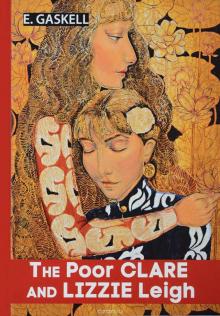 Lizzie Leigh
Lizzie Leigh The Poor Clare
The Poor Clare Lois the Witch
Lois the Witch North and South
North and South Sexton's Hero
Sexton's Hero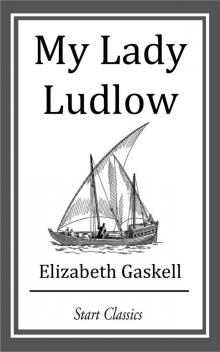 My Lady Ludlow
My Lady Ludlow Uncle Peter
Uncle Peter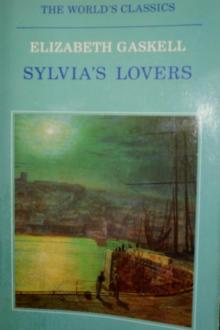 Sylvia's Lovers Elizabeth Cleghorn Gaskell
Sylvia's Lovers Elizabeth Cleghorn Gaskell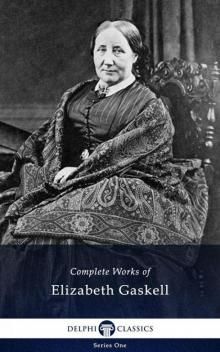 Delphi Complete Works of Elizabeth Gaskell
Delphi Complete Works of Elizabeth Gaskell The Grey Woman
The Grey Woman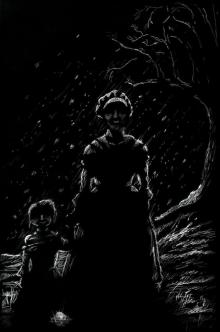 The Old Nurse's Story and Other Tales
The Old Nurse's Story and Other Tales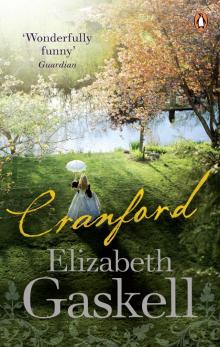 Cranford
Cranford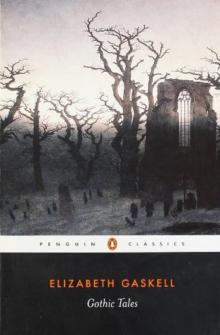 Gothic Tales
Gothic Tales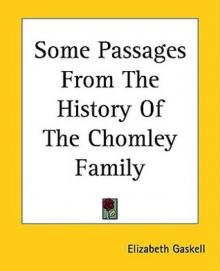 Some Passages From the History of the Chomley Family
Some Passages From the History of the Chomley Family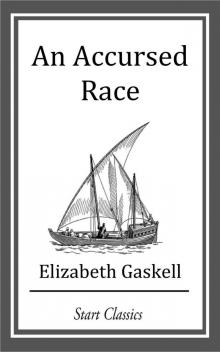 An Accursed Race
An Accursed Race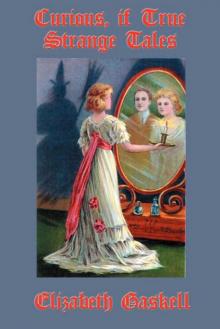 Curious, if True: Strange Tales Elizabeth Cleghorn Gaskell
Curious, if True: Strange Tales Elizabeth Cleghorn Gaskell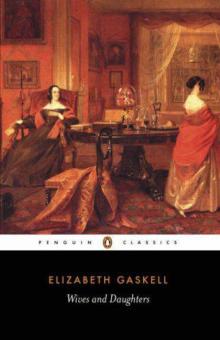 Wives and Daughters
Wives and Daughters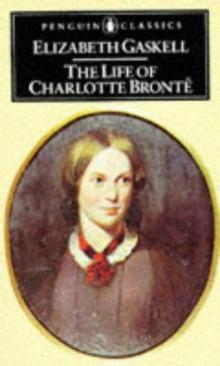 The life of Charlotte Brontë
The life of Charlotte Brontë